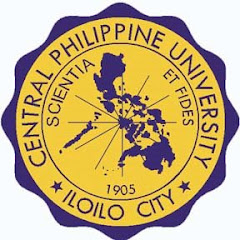Binhi sang Pagtuo
September 28, 2009
Dear Centralians and Friends,
Greetings from the campus!
Last Friday, September 25, 2009, Bagyo Ondoy visited the country. In the afternoon, a siren was heard in Jaro and people started going home from the CPU campus. Lopez-Jaena Street is beginning to flood. Later, news coming from Luzon broke our hearts. Disaster struck our fellow Filipinos.
The 8 hours of continuous rain brought flood in many cities in Luzon. The last big rainfall that fell in the Philippines was on 1967. The rain brought by Ondoy is so far the biggest, even bigger than Bagyo Frank. Some reports said that the rainfall is approximately equivalent to 6 months of rain. The flood reached more than 12 feet in height.
In the midst of this situation, we can raise a question, why did God allow this to happen? Is God deaf, not to hear the prayers and pleas of our fellow Filipinos? Or is there really a God? Is God dead?
Romans chapter 8 reminds us that nothing can separate us from the love of God that is in Jesus Christ our Lord – be it trouble or hardship or persecution or famine or nakedness or danger or sword.
I may sound callous but I am reflecting that the flood is a big warning to all of us. Tropical Storms are normal occurrences but floods like this one are abnormal. We reclaimed lands that are normal pathways of water. We dump garbage in the river. Industrial wastes go to the river also. Graft and corruption in the making and cleaning of canals are rampant. We cut trees that are essential in holding big amounts of water. We are killing our environment. No wonder we are all experiencing the fruit of our own labor.
God always brings a way out of this situation. He sends people like Noah. We ridicule people like Noah, people who are always giving warnings. Are we listening to warnings?
Let us remember to go inside the ark. The ark symbolizes the church. Sad to say, like in the time of Noah, only a few are inside the ark. The animals even outnumbered the people. How about us? Are we inside the ark?
After the flood, there is a rainbow. It symbolizes hope. Hope is what propels the Christians faith to go on. And faith is what pushes us to continue in loving one another, to make actions that will make planet Earth, our only home, a better place for the next generation. Let us not lose hope.
The flood is a very costly reminder. Let us listen to its warning.
May God bless us all!
Sincerely,
Pastor Francis Neil G. Jalando-on
Assistant Chaplain
--
--------------------------------------------------------------------
Chaplain's Office Website: http://www.cpu.edu.ph/chaplain
Audio Sermons of Binhi sang Pagtuo: http://binhi.4shared.com
Blog: http://cpuchaplain.blogspot.com
